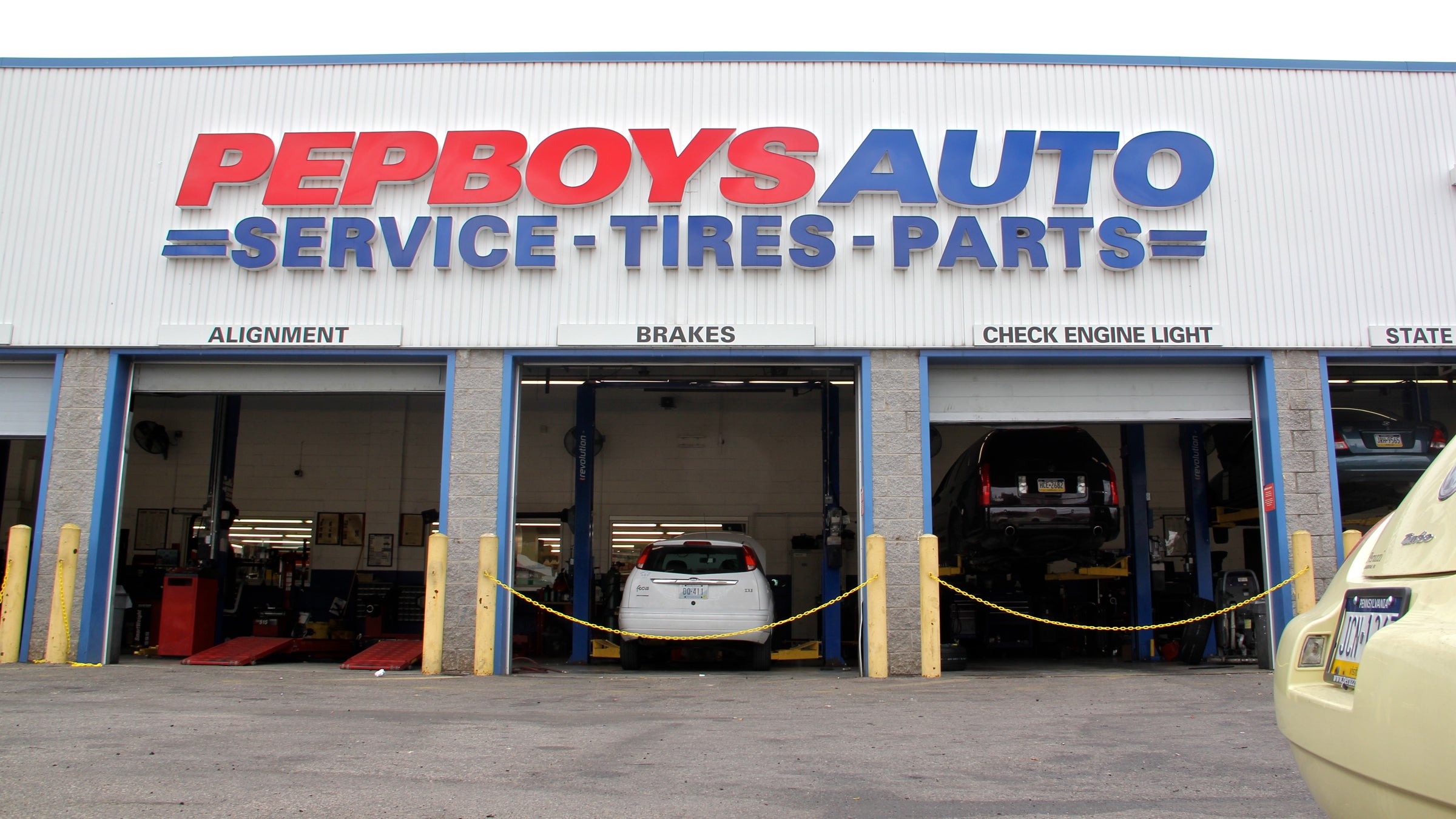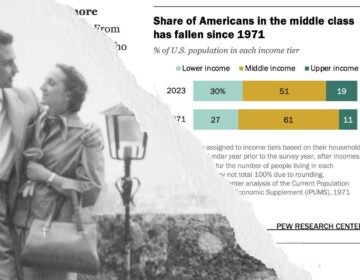How high-tech cars made Pep Boys primed for Bridgestone buyout

The Pep Boys auto parts and repair shop on North Broad Street in Philadelphia. (Emma Lee/WHYY)
Bridgestone America’s $835 million purchase of Philadelphia-based Pep Boys comes at a time when there are more cars on the road than ever before.
But Pep Boys’ business has been posting lackluster results in the face of mounting shareholder pressure to find a new owner.
Analysts say that’s in part because fewer motorists these days work on their own cars, tamping down sales of its do-it-yourself auto repair products.
There’s also a generational componet, says analyst Nick Mitchell with Northcoast Research.
“If you look back one to two generations, it was more common to work on cars,” he said. “The younger generation, generally speaking, they don’t have the know-how to do some of this. So that’s definitely made the retail business tougher.”
The original Pep Boys — Manny, Moe and Jack — opened their first store in 1921 in West Philly, under the name Pep Auto Supplies. In 1946, Pep Boys became a publicaly-traded company. Since then, the automotive industry has radically transformed.
Particularly, new cars are now more high-tech. That’s great news to mechanics, but bad news for Pep Boys, which relies heavily on customers fixing their own cars.
“Part of it is time constraints,” Mitchell said. “Most consumers just don’t have the time to tackle these projects like they did 10 to 20 years ago.”
Not to mention, Mitchell said, that there’s an inherent conflict of interest in offering both parts to fix your own car and service centers to have your car fixed by professionals.
“It’s very hard to compete in all verticals of the automotive market, and that’s what Pep Boys was trying to do,” Mitchell said.
Nashville, Tenn. — where Bridgestone’s headquarters is located — is expected to be a beneficiary of the all-cash deal.
Analysts say it’s likely that most of the 500 Pep Boys office workers at the West Hunting Park Avenue site will eventually relocate to Music City.
WHYY is your source for fact-based, in-depth journalism and information. As a nonprofit organization, we rely on financial support from readers like you. Please give today.




